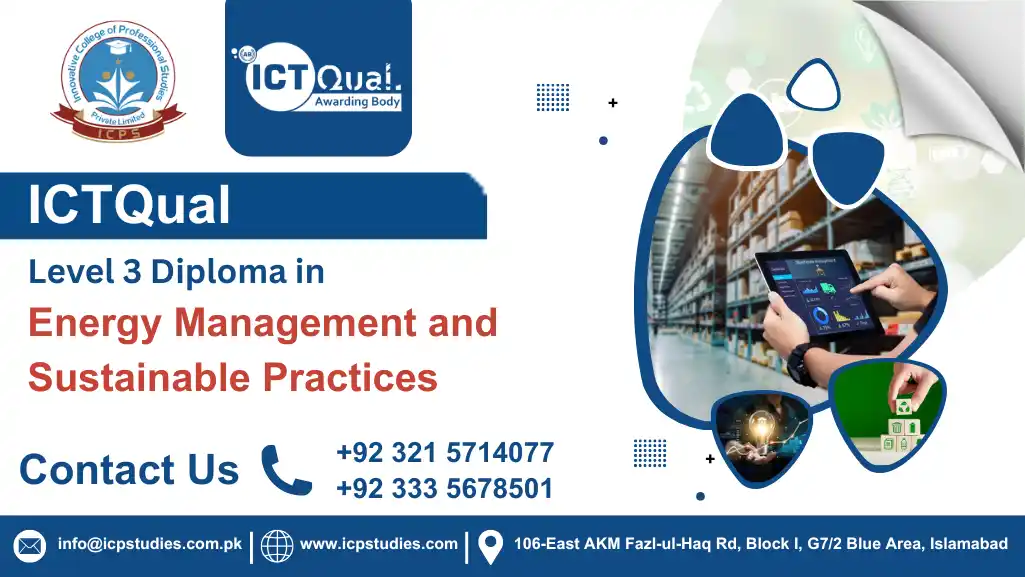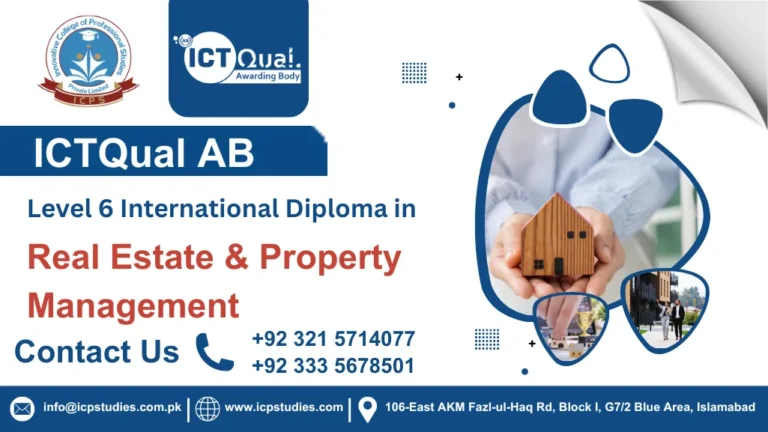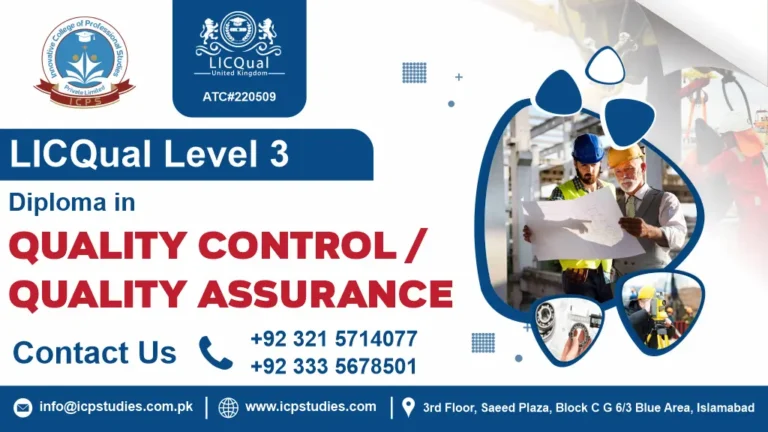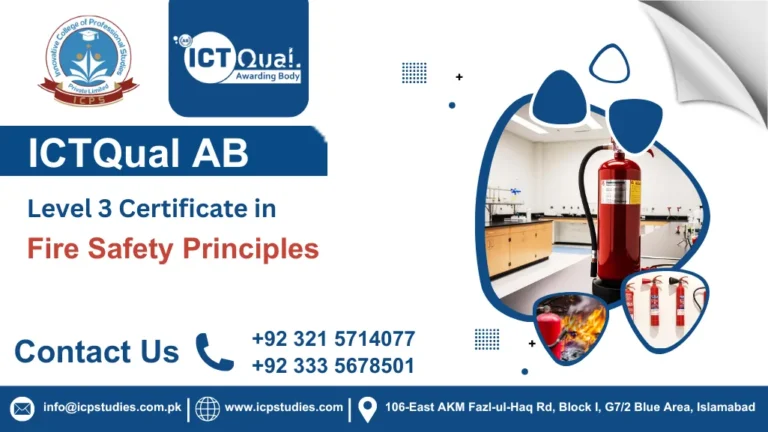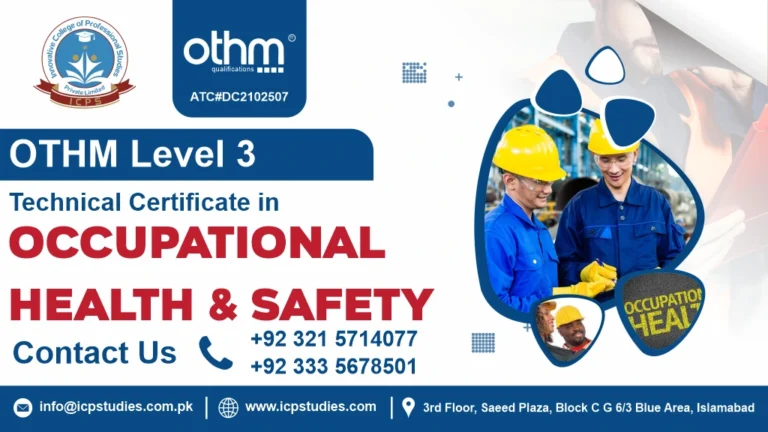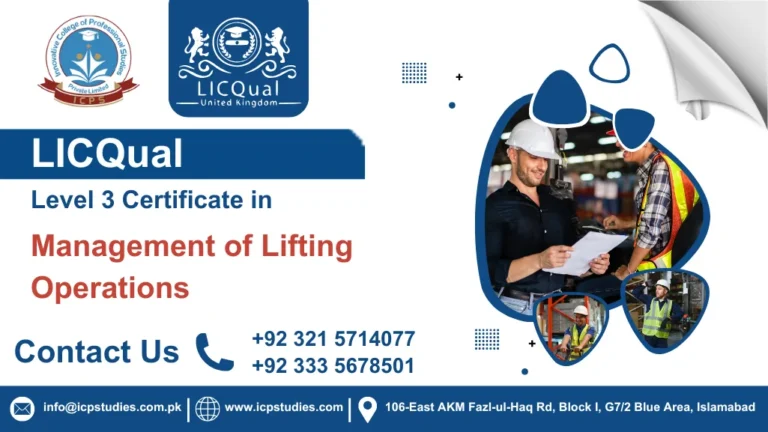As the global focus intensifies on sustainability and climate action, the need for trained professionals who understand energy efficiency and sustainable practices continues to grow. The ICTQual Level 3 Diploma in Energy Management and Sustainable Practices is designed to provide individuals with the core knowledge and practical skills needed to contribute to the environmental performance of businesses, public sector organisations, and community projects.
This diploma serves as an entry-level qualification for those looking to begin a career in energy management or sustainability. It is ideal for school leavers, early-career professionals, and individuals working in facilities, maintenance, or operational roles who want to upskill and gain a recognised credential in the sustainability sector. The programme combines foundational theory with real-world application, covering essential topics such as energy efficiency, carbon awareness, waste reduction, and basic renewable energy principles.
The ICTQual Level 3 Diploma in Energy Management and Sustainable Practices is internationally recognised and offers a solid stepping stone for progression into more advanced qualifications in energy or environmental management. Whether you are entering the workforce, seeking to support your organisation’s sustainability targets, or preparing for further study, this diploma offers a meaningful start to a future-focused and impactful career. With sustainability now a key priority across every sector, this qualification equips learners with the knowledge to drive change and build a more energy-efficient world.
All About ICTQual Level 3 Diploma in Energy Management and Sustainable Practices
Course Overview
The ICTQual Level 3 Diploma in Energy Management and Sustainable Practices is a foundational qualification designed to equip individuals with essential knowledge and practical skills in energy efficiency and environmental sustainability. This course is ideal for those beginning their career in energy management or looking to develop a solid understanding of sustainable operational practices across various industries.
The programme introduces learners to core concepts such as energy consumption analysis, sustainable resource use, carbon footprint reduction, and the basics of renewable energy systems. Through real-world scenarios and hands-on activities, participants gain insight into how businesses and public sector organisations can reduce energy costs and meet environmental compliance requirements.
By completing this course, learners will be well-prepared to support energy-saving initiatives, contribute to sustainability teams, or progress to higher-level qualifications in energy management. The ICTQual Level 3 Diploma is recognised in the UK and internationally, making it a valuable credential for those committed to shaping a more sustainable future.
Study Units
- Fundamentals of Energy Systems and Sustainability
- Energy Efficiency Optimization
- Energy Auditing Skills
- Renewable Energy Integration
- Energy Management in Specific Industries
- Sustainable Practices and Technologies
- Energy Policy and Regulations
- Energy Data Analysis and Reporting
- Emerging Technologies in Energy Management
- Project-Based Learning and Industry Collaboration
- Soft Skills for Energy Professionals
- Global Case Studies and Best Practices
- Capstone Project
To ensure learners can fully engage with the course content and successfully complete the qualification, the following entry requirements apply:
Minimum Age
Applicants must be at least 16 years of age at the time of enrolment. This makes the course accessible to school leavers and those beginning their journey into the energy and sustainability sector.
Educational Background
While there are no strict academic prerequisites, it is recommended that learners have a basic secondary school education or equivalent. A general interest in environmental issues, science, or technology will support better understanding and engagement with the course material.
Work Experience
There is no formal work experience requirement for this diploma. It is designed as an entry-level qualification suitable for individuals with little or no previous experience in energy or sustainability roles. However, those working in facilities, operations, or administrative roles may find the course particularly relevant to their day-to-day responsibilities.
Language Proficiency
As the course is delivered in English, learners should have a basic to intermediate level of spoken and written English. This ensures they can understand course materials, participate in discussions, and complete assessments. Non-native English speakers may be asked to provide evidence of language proficiency if required by the training provider.
These entry requirements ensure the diploma remains accessible while maintaining the level of understanding needed for successful progression in the field of energy management and sustainable practices.
Anyone seeking to support their organisation’s sustainability objectives, particularly in energy auditing, waste reduction, and resource management.
School leavers and individuals starting their career in energy management, sustainability, or environmental fields.
Early-career professionals seeking to gain a recognised qualification in energy efficiency and sustainable practices.
Employees in operational, facilities, or administrative roles who want to enhance their skills in energy management and support organisational sustainability goals.
Individuals passionate about environmental responsibility who want to make a positive impact on energy consumption and sustainability in their workplace.
Those looking to progress into higher-level qualifications in energy management, environmental science, or renewable energy technologies.
Employees in industries such as construction, facilities management, and public services who aim to reduce energy costs and improve operational efficiency.
Learning Outcomes
Fundamentals of Energy Systems and Sustainability
- Understand basic principles of energy systems and their role in sustainable practices
- Recognise the impact of energy consumption on the environment and the importance of sustainability
- Gain foundational knowledge of energy sources, including fossil fuels, renewables, and energy efficiency
Energy Efficiency Optimization
- Learn techniques to optimise energy use in various environments
- Understand the concept of energy efficiency and its application in reducing operational costs
- Identify and recommend energy-saving strategies for buildings, facilities, and organisations
Energy Auditing Skills
- Gain practical experience in conducting energy audits for different types of facilities
- Analyse energy consumption patterns and identify opportunities for energy savings
- Prepare audit reports that outline findings and actionable recommendations
Renewable Energy Integration
- Explore different renewable energy technologies, such as solar, wind, and biomass
- Learn how to integrate renewable energy systems into existing energy infrastructure
- Understand the challenges and benefits of transitioning to renewable energy solutions
Energy Management in Specific Industries
- Apply energy management principles to various sectors, including manufacturing, healthcare, and commercial buildings
- Understand the unique energy demands and sustainability challenges within different industries
- Develop sector-specific energy management plans to improve efficiency and reduce costs
Sustainable Practices and Technologies
- Study sustainable technologies and practices that contribute to environmental conservation
- Learn how to apply green building methods, sustainable design, and resource-efficient systems
- Understand the lifecycle impact of products and services on energy consumption and waste
Energy Policy and Regulations
- Gain an understanding of energy policies, regulations, and compliance standards
- Learn the role of government initiatives and incentives in promoting energy efficiency and sustainability
- Stay informed on national and international energy regulations and their impact on businesses and communities
Energy Data Analysis and Reporting
- Develop skills in analysing energy consumption data and identifying trends
- Learn how to use energy management software tools to monitor and optimise energy use
- Present data-driven recommendations through clear and concise reporting
Emerging Technologies in Energy Management
- Understand the role of emerging technologies, such as smart grids and energy storage, in modern energy management
- Explore how innovations in IoT (Internet of Things) and AI are revolutionising energy systems
- Assess the potential of new technologies in improving energy efficiency and reducing environmental impact
Project-Based Learning and Industry Collaboration
- Apply theoretical knowledge to real-world energy management projects
- Collaborate with industry professionals and gain practical experience in energy projects
- Develop problem-solving, project management, and teamwork skills essential for the energy sector
Soft Skills for Energy Professionals
- Enhance communication, leadership, and interpersonal skills required in energy management roles
- Develop a strong understanding of how to work effectively in multidisciplinary teams
- Improve negotiation, presentation, and stakeholder management abilities
Global Case Studies and Best Practices
- Study successful international energy projects and sustainability initiatives
- Learn from global best practices in energy management and apply these lessons to local contexts
- Identify key factors that contribute to the success or failure of energy projects across different regions
Capstone Project
- Plan, design, and implement an energy management solution or sustainability initiative
- Integrate knowledge from all course units into a comprehensive project
- Demonstrate project management skills, including research, analysis, and practical application in an industry setting
FAQs ICTQual Level 3 Diploma in Energy Management and Sustainable Practices

